You’ve reached your limit!
To continue enjoying Utility Week Innovate, brought to you in association with Utility Week Live or gain unlimited Utility Week site access choose the option that applies to you below:
Register to access Utility Week Innovate
- Get the latest insight on frontline business challenges
- Receive specialist sector newsletters to keep you informed
- Access our Utility Week Innovate content for free
- Join us in bringing collaborative innovation to life at Utility Week Live

As part of Utility Week Innovate and Utility Week Live’s ‘Unlocking Collaborative Innovation’ series, hydrogen experts discuss the importance of a joined up approach across utilities, academia and local authorities to create commercially viable hydrogen.
With the decarbonization of heat one of the UK’s most pressing challenges in the race to achieve net zero, all eyes are on hydrogen – one of the few technologies which could, if cracked, unlock low carbon heat at scale. But pressing questions over its viability and scalability remain – questions which utility companies, local authorities and government are coming together to answer.
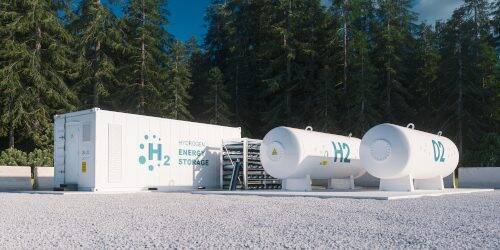 One such trial is being rolled out by water company Severn Trent and the University of Warwick, demonstrating the potential value of pan-utility and academic collaboration when it comes to creating both efficient and cost competitive hydrogen.
One such trial is being rolled out by water company Severn Trent and the University of Warwick, demonstrating the potential value of pan-utility and academic collaboration when it comes to creating both efficient and cost competitive hydrogen.
Such trials are critical, because proving the viability of hydrogen as the Government winds towards key decisions about the future makeup of the UK’s energy system is one of the foremost challenges facing the utilities sector – hence the range of innovation projects ranging from Acorn’s Hydrogen Coast project in north east Scotland to SGN, Exxon Mobil and Macquarie’s Green Investment Group’s Hydrogen Super Hub at Southampton already in train. Many of these will be on display at Utility Week Live, 17-18 May 2022, where decarbonising heat is one of the headline challenges explored by the action-packed content programme.
In Severn Trent’s trial, early work by Warwick using microbial electrolysis cells – which deploy electromagnetic organisms to break down organic pollutants in wastewater and produce hydrogen – had proved cost prohibitive at scale and resulted in low hydrogen yields.
However, researchers found that using recycled carbon fibre mats in place of more expensive graphite ones yielded better temperature tolerance so more bacteria developed on them and therefore more hydrogen was produced at a lower cost
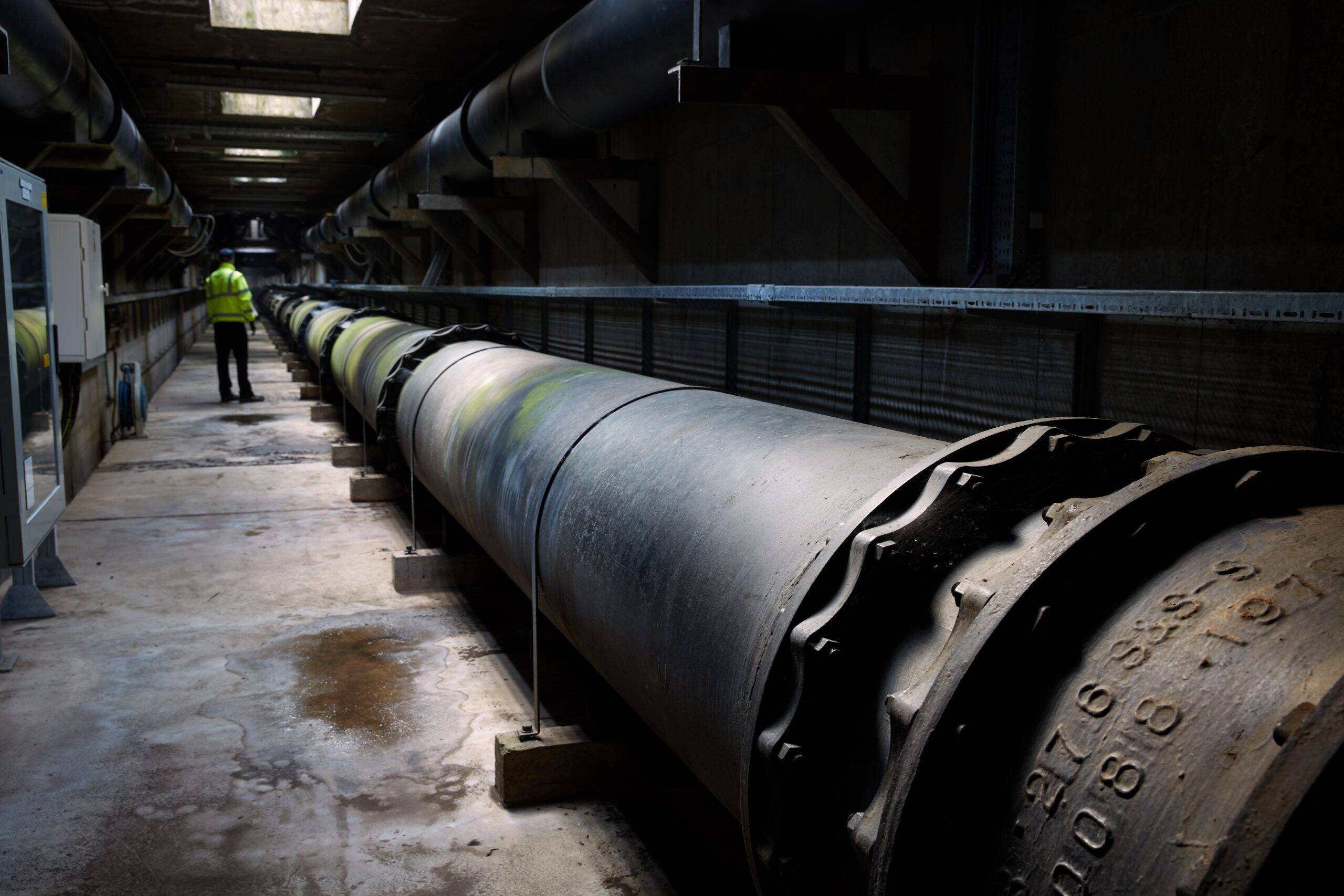 Tests at Severn Trent’s largest sewage processing plant at Minworth saw the carbon fibre mats remove 51% of organic pollutants and up to 100% of suspended solids while producing 18 times more hydrogen than graphite alternatives.
Tests at Severn Trent’s largest sewage processing plant at Minworth saw the carbon fibre mats remove 51% of organic pollutants and up to 100% of suspended solids while producing 18 times more hydrogen than graphite alternatives.
“The performance boost and cost savings demonstrated from this research mean that microbial electrolysis cell technology is one step closer to being cost competitive with existing wastewater treatment assets,” Bob Stear, chief engineer at Severn Trent said.
The team is currently in the process of optimising the design of the microbial electrolysis cells, which researchers suggest should result in even higher rates of hydrogen production and pollutant removal.
Overcoming market barriers
Government support for explorations into hydrogen is well established – ministers published an ambitious strategy in August 2021 outlining their vision for the creation of a hydrogen economy to support 5GW of low carbon hydrogen production capacity by 2030. By this point, Government figures estimate that the UK’s hydrogen economy could be worth £900 million and have created more than 9,000 jobs – potentially rising to 100,000 jobs and worth up to £13 billion by 2050.
With all this in mind, however, a range of market barriers still inhibit the rollout of a low carbon hydrogen economy, with the Government wrapping a consultation on business models to overcome cost and production shaped challenges in October.
 “What we’re looking at is change on a scale that we’ve not seen since the transition from town gas to natural gas – and there are lots of associated risks,” Richard Barker, director at Peel Natural Resources and Energy explains.
“What we’re looking at is change on a scale that we’ve not seen since the transition from town gas to natural gas – and there are lots of associated risks,” Richard Barker, director at Peel Natural Resources and Energy explains.
“Government covered it off last time with nationalised industry. This time, they are expecting people to come together to deliver and I think collaboration is the only way of delivering it in the way that they want. Government can provide the support network and systems, but ultimately we are going to be working together.”
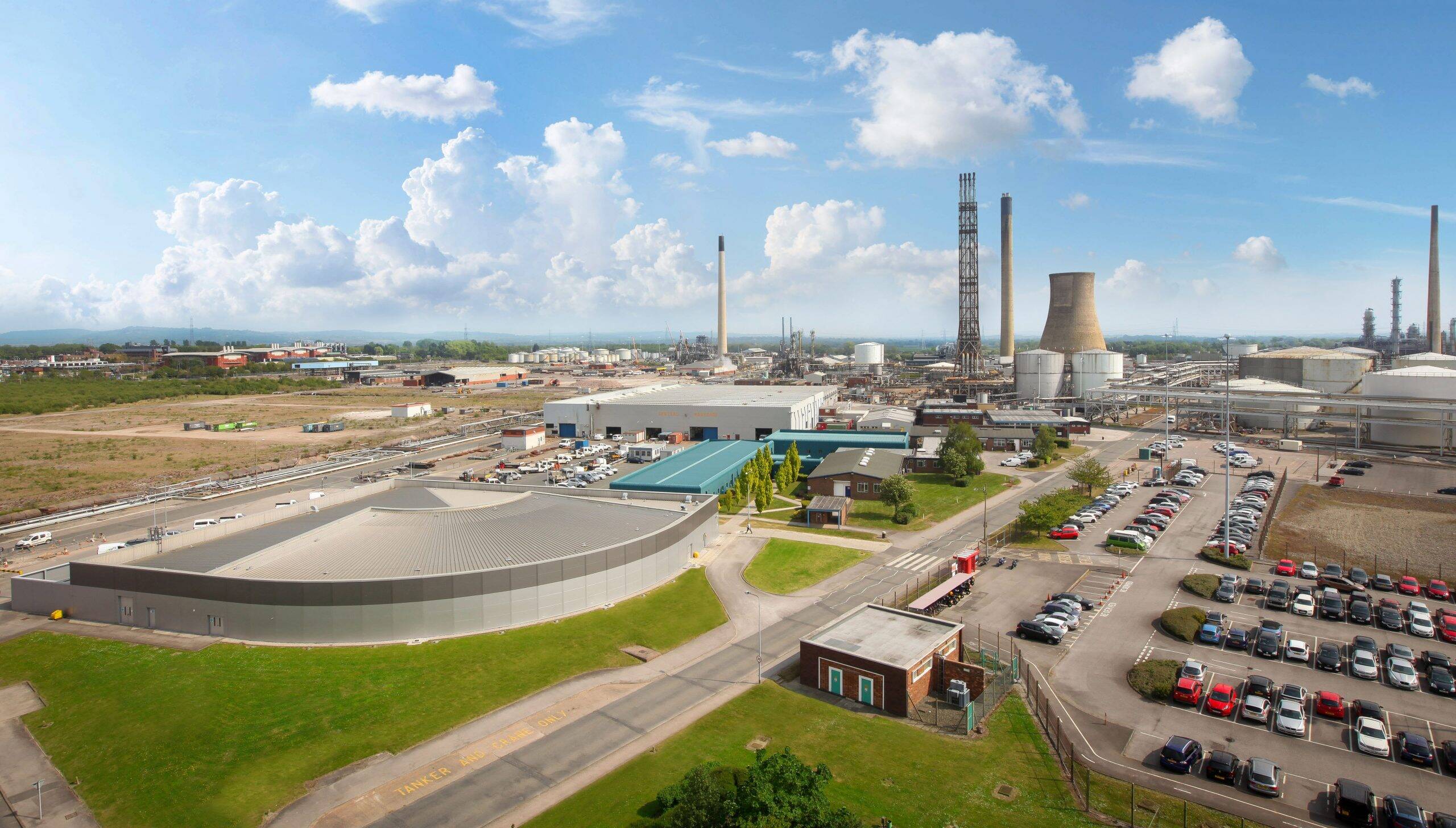
A decade of hydrogen delivery
As an example of this, Wales & West Utilities has pledged £400 million between 2021 and 2026 to its efforts to kickstart hydrogen and deliver a net zero ready gas network by 2035.
“This will unlock the potential of green gas like hydrogen and biomethane, alongside renewable electricity, while keeping the impact on customers’ bills to a minimum,” Matt Hindle, the network’s head of net zero and sustainability, explains.
To this end, Hindle adds that collaborative innovation is central to ensuring that the 2020s are remembered as a “decade of delivery” in which hydrogen research and development work are implemented.
“Strong collaboration will be the basis for delivering hydrogen to industry, transport and domestic consumers,” he says. “Different organisations will be involved in developing or transitioning infrastructure to make, move and use hydrogen – they will need to work closely together alongside national, devolved and local governments and regulators.”
The good news, according to Hindle, is that many of these necessary partnerships – and indeed a “decade of delivery” – appear to be in motion.
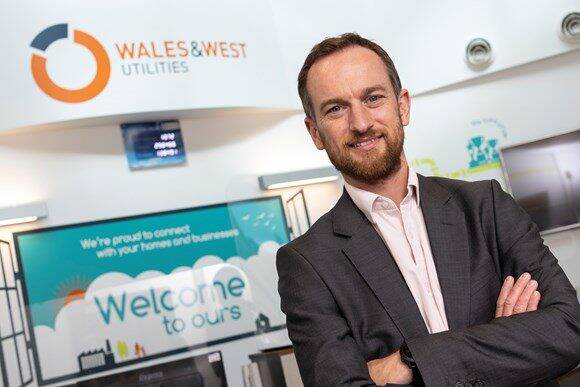 “Just within the areas we serve we’re working directly with HyNet, the South Wales Industrial Cluster and the South West Hydrogen Ecosystem Partnership; and nationally, the gas networks published our Hydrogen Network Plan, a major new blueprint for building the UK’s hydrogen economy,” he says. “It sets out joint our roadmap for transition to hydrogen, which will reduce our carbon emissions in a safe and secure way.
“Just within the areas we serve we’re working directly with HyNet, the South Wales Industrial Cluster and the South West Hydrogen Ecosystem Partnership; and nationally, the gas networks published our Hydrogen Network Plan, a major new blueprint for building the UK’s hydrogen economy,” he says. “It sets out joint our roadmap for transition to hydrogen, which will reduce our carbon emissions in a safe and secure way.
“All of this work is about delivering meaningful choice for households, businesses and communities, and making sure the economic benefits of hydrogen are spread across Wales and south west England and the UK as a whole.”
Find out more about the cutting edge trials taking place and hear from project leaders at Utility Week Live, 17-18 May 2022.
Building a hydrogen city on private foundations
The financial viability of the energy transition in arguably the UK’s foremost hydrogen city, Aberdeen, has rested on the granite city’s longstanding relationship and collaboration with the private sector.
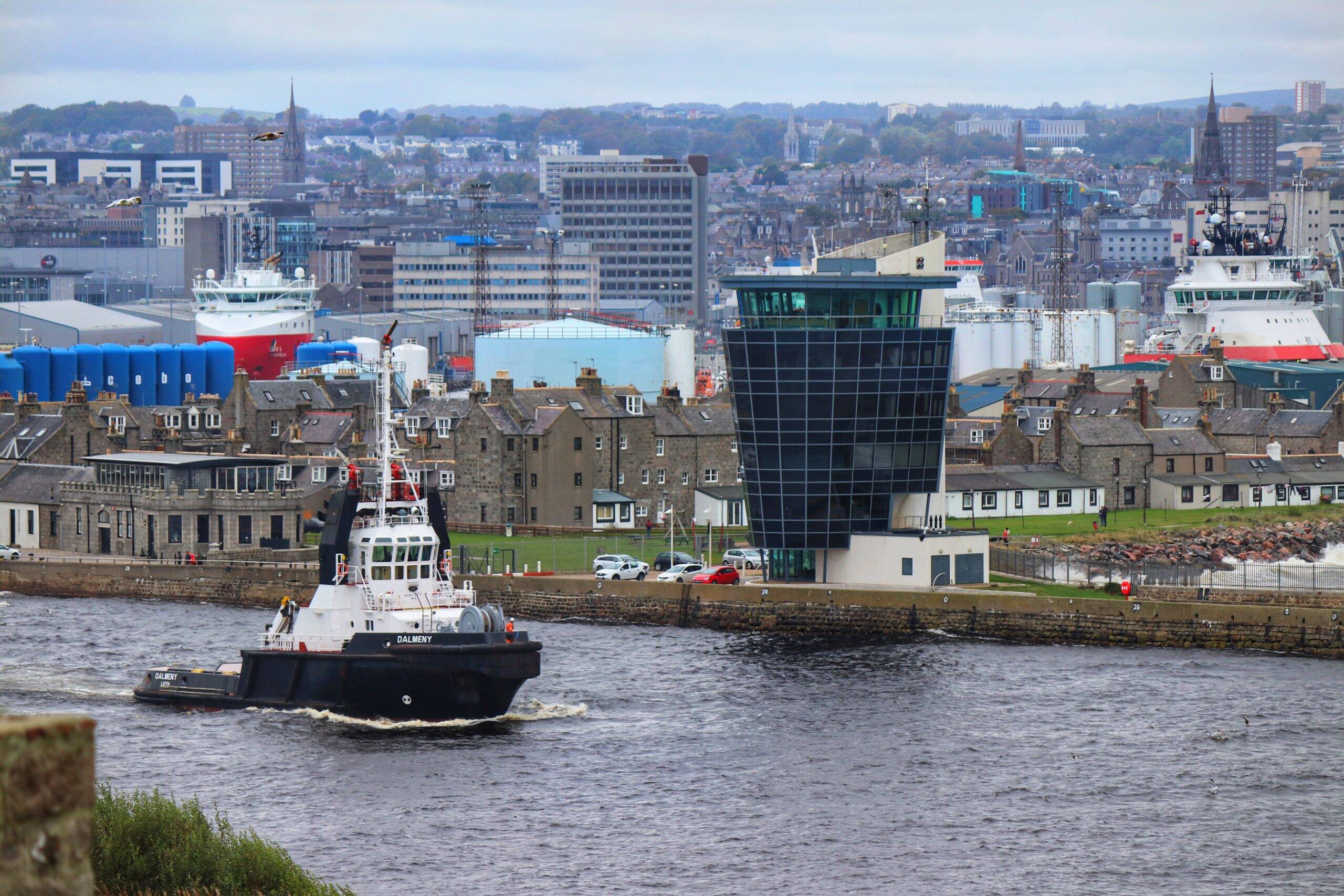 “We have a very private sector-led economy in Aberdeen, which is quite unusual for a large Scottish city,” council leader Jenny Laing explains. “When you look at Edinburgh, Glasgow and Dundee, for instance, public sector companies are big employers, whereas in Aberdeen the private sector pushes our economy forward. Because of that, we’ve been used to working in partnership on various projects.”
“We have a very private sector-led economy in Aberdeen, which is quite unusual for a large Scottish city,” council leader Jenny Laing explains. “When you look at Edinburgh, Glasgow and Dundee, for instance, public sector companies are big employers, whereas in Aberdeen the private sector pushes our economy forward. Because of that, we’ve been used to working in partnership on various projects.”
In the half century since the city first found itself “playing host” to booming oil and gas industries, Aberdeen has established said strong ties, building expertise and supply chains that Laing believes can now be transferred into renewables and hydrogen. “I think we have the components in Aberdeen to really propel us forward in the renewable sector,” she says.
According to Laing, such private sector partnerships have stemmed from Aberdeen Council historically being among the lowest funded in Scotland, shifting the onus onto the city to raise its own income to supplement streams such as council tax and business rates.
“We get a very small proportion of grant funding – 86% of revenue that comes into the council comes from our own local means,” she explains. “Because of that, we’ve worked closely with the private sector to make sure that our economy – which has been very buoyant over the last 50 years because of oil and gas – continues to be buoyant.
“I think often we’re very innovative here,” Laing adds. “We’ll look for ways in which we can operate with the private sector to generate that inward investment, and hopefully that’s to mutual benefit.”
 Such innovation saw the city draft its first hydrogen strategy in 2015, with £35 million subsequently spent on the city’s hydrogen transition to date, according to Laing – who adds that Aberdeen’s budget in March 2021 pledged a further £19 million investment in principal.
Such innovation saw the city draft its first hydrogen strategy in 2015, with £35 million subsequently spent on the city’s hydrogen transition to date, according to Laing – who adds that Aberdeen’s budget in March 2021 pledged a further £19 million investment in principal.
“We saw the potential of hydrogen very early on,” Laing says. “I think a lot of places were particularly just looking at the EV market, but we really could see that there was a great potential for hydrogen – that’s really why we moved into that and secured European funding to help us with our demonstrator project.”
Having taken its first hydrogen-powered steps with the city’s bus project in 2015 – a £19million scheme which saw 10 hydrogen powered vehicles introduced into existing Stagecoach and First Bus fleets – Aberdeen City Council’s city growth and resources committee approved oil and gas giant BP as the commercial partner for the city’s ambitions at the start of February. The latest example of private sector collaboration facilitating the city’s hydrogen innovation.
The move sees BP named as joint venture partner to deliver the Aberdeen Hydrogen Hub Strategic Partnership – a key part of which will involve the creation of Scotland’s first scalable green hydrogen production facility and see a commercial hydrogen production, storage and distribution hub in Aberdeen powered by a new solar array operational from 2024.
“We’re proud that hydrogen is already here in Aberdeen and this significant commercial partnership with BP is set to support our ambitions,” Laing said of deal’s confirmation.
“We plan to create a blueprint which can be replicated around the world by the cities and regions looking to reach net zero. Aberdeen’s position as a leader in the energy industry requires ongoing investment and partnership and the Hydrogen Hub is a fantastic example.”
See this content brought to life at Utility Week Live, 17-18 May 2022 NEC Birmingham. FREE to attend for utilities. Register today.
Decarbonising heat, Decarbonising transport and Delivering smart energy networks are among the frontline challenges at the heart of Utility Week Live 2022’s live content programme. View the programme.

Please login or Register to leave a comment.